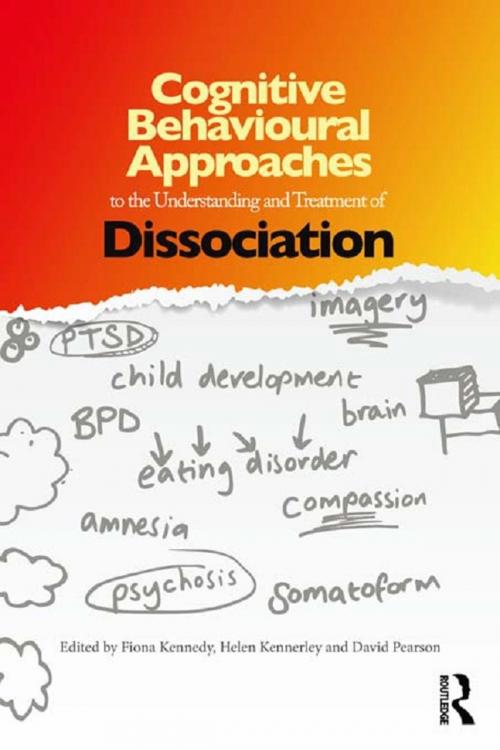Cognitive Behavioural Approaches to the Understanding and Treatment of Dissociation
Nonfiction, Health & Well Being, Psychology, Mental Illness, Mental Health| Author: | ISBN: | 9781135050030 | |
| Publisher: | Taylor and Francis | Publication: | June 19, 2013 |
| Imprint: | Routledge | Language: | English |
| Author: | |
| ISBN: | 9781135050030 |
| Publisher: | Taylor and Francis |
| Publication: | June 19, 2013 |
| Imprint: | Routledge |
| Language: | English |
The study of dissociation is relevant to anyone undertaking research or treatment of mental health problems. Cognitive Behavioural Approaches to the Understanding and Treatment of Dissociation uses a cognitive approach to de-mystify the processes involved in linking traumatic incidents to their effects.
Kennedy, Kennerley and Pearson present a full and comprehensive understanding of mental health problems involving dissociative disorders and their treatment, bringing together an international range of experts. Each chapter addresses a single topic in full, including assessment of previous research from a cognitive perspective, recommendations for treatment and case studies to illustrate clinical approaches. Using an evidence-based scientific approach combined with the wisdom of clinical experience, the authors make the relevance of dissociation immediately recognisable to those familiar with PTSD, dissociative identity disorder, eating disorders, hallucinations and a wide range of psychological and non-organic physical health disorders.
Designed to provide new perspectives on both research and treatment, Cognitive Behavioural Approaches to the Understanding and Treatment of Dissociation includes a wide range of material that will appeal to clinicians, academics and students.
The study of dissociation is relevant to anyone undertaking research or treatment of mental health problems. Cognitive Behavioural Approaches to the Understanding and Treatment of Dissociation uses a cognitive approach to de-mystify the processes involved in linking traumatic incidents to their effects.
Kennedy, Kennerley and Pearson present a full and comprehensive understanding of mental health problems involving dissociative disorders and their treatment, bringing together an international range of experts. Each chapter addresses a single topic in full, including assessment of previous research from a cognitive perspective, recommendations for treatment and case studies to illustrate clinical approaches. Using an evidence-based scientific approach combined with the wisdom of clinical experience, the authors make the relevance of dissociation immediately recognisable to those familiar with PTSD, dissociative identity disorder, eating disorders, hallucinations and a wide range of psychological and non-organic physical health disorders.
Designed to provide new perspectives on both research and treatment, Cognitive Behavioural Approaches to the Understanding and Treatment of Dissociation includes a wide range of material that will appeal to clinicians, academics and students.















